*/
]]>
——
The “Presswerk 4.0” is not too far away. Individual elements already prove themselves in daily operation.
——
Dr. Niels Koch has a vision. A press shop, in whose production there is no reworking. In which the absolutely conceivable minimum amount of cut waste arises. In which each piece of sheet metal is cut and shaped in optimal quality. One hundred percent can be accurately predicted in 1A quality because they can be programmed into the systems. Last but not least, presses are able to react independently to changing requirements and permanently improve themselves, so to speak.
A utopia? Not at all. Actually, it is not even a vision anymore. It’s about a very concrete idea of how “Presswerk 4.0” works. Its implementation is no longer just intensive work – in the Rüsselsheim Presswerk some elements of this future version already prove themselves in daily operation. And further big steps towards “Presswerk 4.0” will be taken this year.
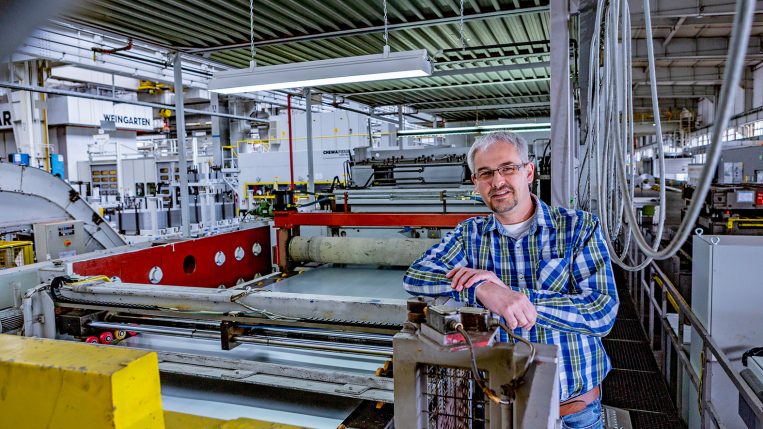
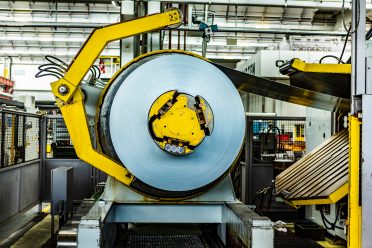
WHY FOURTH INDUSTRIAL REVOLUTION? Water and steam gave the machines the power to produce products in large quantities for the first time – the basis for the first industrial revolution. Electricity and the assembly line were the pillars of the second stage, before electronics and IT further optimized industrial production. With the advent of digital technologies, not only the fourth revolution is imminent – at the same time a paradigm shift is taking place. Once the first three industrial revolutions have optimized the production machinery, the signs are reversed: the machine does not produce a product, the product tells the machine how it wants to be produced, and controls itself through production. The buzzword is Industry 4.0.
Niels Koch is responsible for the development of new technologies for Opel’s press shops at Advanced Manufacturing Technologies. Under the direction of dr. Petra Krammer works the whole area on the ideal picture of the “smart factory” where people, machines, tools and resources are perfectly networked and work together.
——
Coin-sized sensors and scanners that are installed make the presses smart.
——
For the superficial observer, one day comparatively little of this will be seen in the press shop: for the outer shape of the monstrous presses will not change much. The decisive improvements to quality in continuity and perfection are mainly ensured by electronic means. At times, only the coin-sized sensors and scanners that are installed in the systems provide the necessary basis for this data.
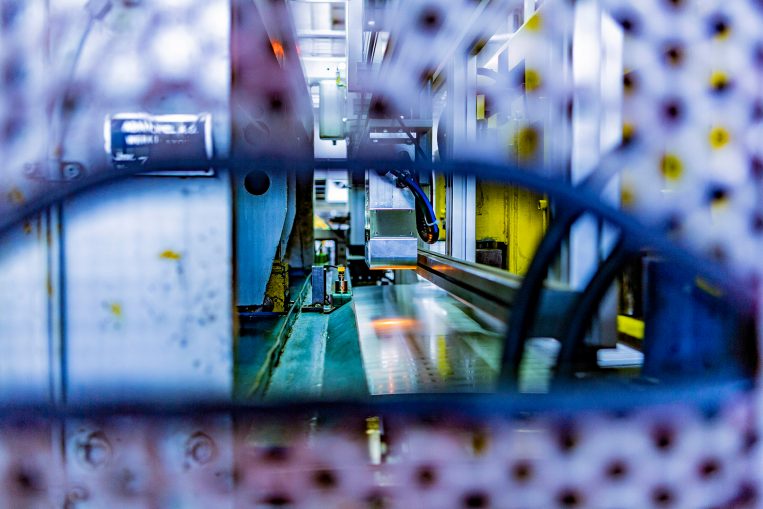
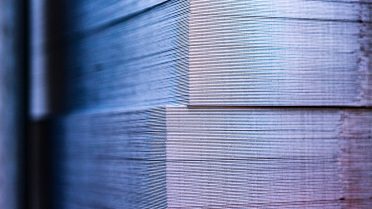
A and O of this Industry 4.0 version is the material input test. The “coils”, the large sheet metal rolls that are delivered in the press shop, have of course been manufactured by suppliers within specified tolerances. “But we did not know much about changes that occurred during transport or storage on the surface or during oil application,” explains Niels Koch. “In Press Shop 4.0, we first have to collect absolutely precise information about the nature of each individual board before we begin cutting and forming.”
Sensors and scanners for a precise measurement of oil application and sheet thickness are already installed in Rüsselsheim. A method for determining the material characteristics of the sheet metal strip has already been successfully tested and is to be installed in the press shop this year. In addition, all information must be retrievable on each section. Therefore, each board is coded before it makes its way through the presses.
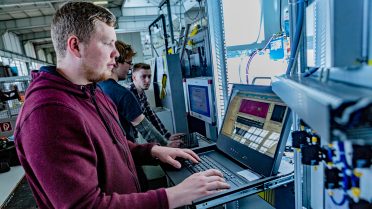
——
Each board is code-coded before making its way through the presses.
——
Some of the innovative processes that the Advance Developers have designed are now pending. Students who prepare for the exam help with basic research. And before something becomes hardware in Presswerk 4.0, it has already been simulated with the help of a “digital twin”.
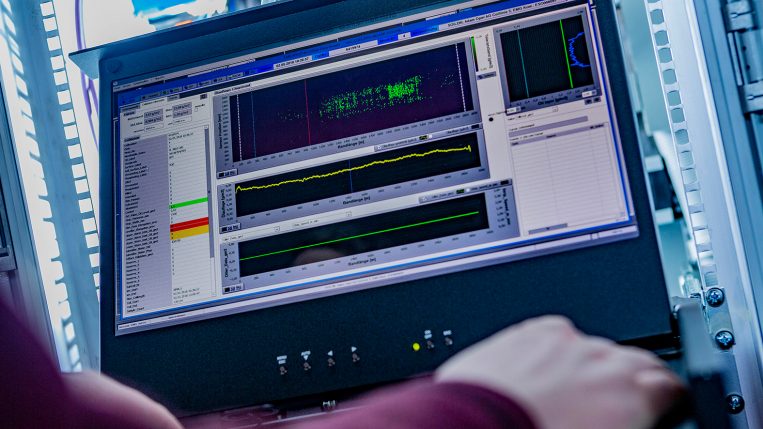
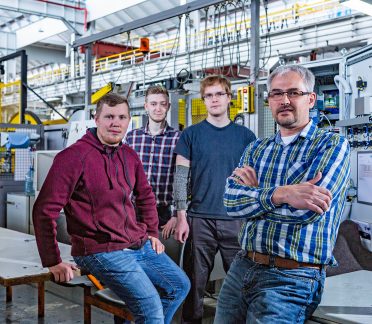
(from left): Max Morlock, Julius Bremer, Leon Kallenbach, (dual students of mechatronics and plant electronics plus systems engineering), Niels Koch.
——
The machines report themselves when maintenance becomes necessary.
——
The data collected during the material input inspection are included in the program, which subsequently controls the entire further process, in particular the “fine tuning” of the processing tools. However, other units installed in the process can also issue reports to the maintenance department as soon as they detect any need – including a suitable solution proposal. The “forward-looking maintenance” is just as little a utopia as the independent learning of the facilities.
Press shop networked
In the final stage, the press shop data is networked with the adjacent production areas. Because precise information about the condition of a sheet metal part in turn form the best basis for a hundred percent accurate processing in the body shop and, subsequently, a perfect finish.
This is how the “smart factory” is being built piece by piece – and by the end of the year there will still be a few more puzzle pieces. “The smooth implementation would not have been possible without the active support of the employees of the press shop and the production planning in Rüsselsheim”,
As of May 2018
Text: Eric Scherer, Photos: Alex Heimann

